Cozumel Landfills Waste Management
Cozumel Landfills Waste Management Moises JH Tono Lopez
Cozumel & The The Challenge of Waste Management
Environmental Audit and Sustainability Perspectives
Text & Translation By Moises Jimenez & Antonio Lopez
In an interview with local media, the municipal trustee of Cozumel announced the completion of an environmental audit of the island’s landfill. This initiative is carried out in response to concerns and suggestions about possible anomalies in waste management on the island, and seeks to comprehensively address the issue of sustainability in Cozumel.
One of the key aspects that the municipal authority has highlighted is the problem of landfill expansion. In past administrations, permission was requested to build six additional cells, according to the master project. However, the Ministry of the Environment only authorized the construction of two cells. This limitation implies the need for more efficient and controlled waste management by the island and the concessionaire entity.
The municipal authority emphasizes the importance of addressing this situation with the seriousness it deserves, since it faces a latent danger. The saturation of a landfill, as recently occurred in Oaxaca, can have serious consequences, especially on an island like Cozumel.
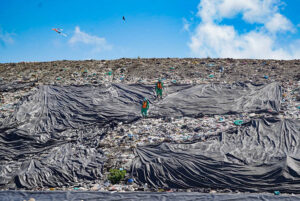 The case of Oaxaca, where the landfill reached its maximum capacity, became a relevant media topic. In Cozumel, the situation would be even more complicated due to the island’s location, which implies the transfer of waste and the consideration of exclusion zones established by state law.
The case of Oaxaca, where the landfill reached its maximum capacity, became a relevant media topic. In Cozumel, the situation would be even more complicated due to the island’s location, which implies the transfer of waste and the consideration of exclusion zones established by state law.
“Exclusion zones” in the context of landfills refer to areas where authorizations are no longer granted to construct new waste disposal sites. According to state law, Cozumel is located in one of these exclusion zones, which makes the authorization of a new landfill on the island unfeasible.
Given this reality, the municipal authority is working on the generation of new projects and strategies to address the problem of waste management in Cozumel. One of the main measures is to promote the composting of organic waste, which represents approximately 50% of the waste on the island. Composting organic waste can significantly reduce the amount of waste sent to landfill and contribute to sustainability.
In addition, the aim is to increase the recycling of waste that is recyclable, approximately 30% of the total. Collaboration between citizens, the government and the business sector is essential to achieve effective separation of recyclables, preventing them from ending up in landfills.
The municipal authority emphasizes that a landfill should be the final destination only for waste that has no other use or value. According to a previous study by the 2016-2018 administration, around 20% of waste in Cozumel cannot be reused or recycled, which highlights the importance of preventing recyclables and organics from reaching the landfill.
In practical terms, if 50% of organic waste could be composted and 30% of recyclables recycled, only the remaining 20% would be sent to the landfill. This not only reduces the amount of waste entering the landfill, but also extends the life of the existing cells, from 2 years to possibly 5 or 10 years.
An important aspect to consider is the existing agreement between the concessionaire entity and the municipality of Cozumel. This agreement, based on the tonnage rate, implies that the cost of waste treatment depends on the amount of waste sent to the landfill. If adequate separation of waste is not carried out, as in the case of the aforementioned PET, the volume of waste increases, which in turn increases costs for the municipality.
Currently, the municipality of Cozumel pays approximately 3,800,000 pesos per month to the concessionaire entity for waste management. The rate is adjusted for inflation, highlighting the importance of implementing effective measures to reduce the amount of waste sent to landfill and therefore the associated costs.
In conclusion, the environmental audit at the Cozumel landfill is an important step towards more efficient and sustainable waste management on the island. Landfill saturation and legal limitations make it imperative to find innovative solutions, such as composting organic waste and increasing recycling. Collaboration between the community, government and the business sector is essential to ensure the success of these efforts and to preserve the beauty and environmental balance of Cozumel.
El Desafío de la Gestión de Residuos en la Isla de Cozumel: Auditoría Ambiental y Perspectivas de Sustentabilidad
Texto & Traducción Por Moises Jimenez & Antonio Lopez
En entrevista a medios loclares, el sindico municipal de Cozumel dio a conocer la realización de una auditoría ambiental al relleno sanitario de la isla. Esta iniciativa se lleva a cabo en respuesta a preocupaciones y sugerencias acerca de posibles anomalías en la gestión de residuos en la isla, y busca abordar de manera integral el tema de la sustentabilidad en Cozumel.
Uno de los aspectos clave que la autoridad municipal ha destacado es el problema de la expansión del relleno sanitario. En administraciones pasadas, se solicitó permiso para construir seis celdas adicionales, conforme al proyecto maestro. Sin embargo, la Secretaría de Medio Ambiente solo autorizó la construcción de dos celdas. Esta limitación implica la necesidad de un manejo más eficiente y controlado de los residuos por parte de la isla y de la entidad concesionaria.
La autoridad municipal subraya la importancia de abordar esta situación con la seriedad que merece, ya que se enfrenta un peligro latente.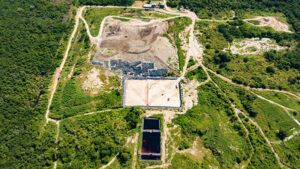 La saturación de un relleno sanitario, como ocurrió recientemente en Oaxaca, puede tener graves consecuencias, especialmente en una isla como Cozumel.
La saturación de un relleno sanitario, como ocurrió recientemente en Oaxaca, puede tener graves consecuencias, especialmente en una isla como Cozumel.
El caso de Oaxaca, donde el relleno sanitario llegó a su capacidad máxima, se convirtió en un tema mediático de relevancia. En Cozumel, la situación sería aún más complicada debido a la insularidad, lo que implica el traslado de los residuos y la consideración de las zonas de exclusión establecidas por la ley estatal.
Las “zonas de exclusión” en el contexto de los rellenos sanitarios se refieren a áreas donde ya no se otorgan autorizaciones para construir nuevos sitios de disposición de residuos. Según la ley estatal, Cozumel se encuentra en una de estas zonas de exclusión, lo que hace inviable la autorización de un nuevo relleno sanitario en la isla.
Ante esta realidad, la autoridad municipal está trabajando en la generación de nuevos proyectos y estrategias para abordar el problema de la gestión de residuos en Cozumel. Una de las principales medidas es fomentar el compostaje de los residuos orgánicos, que representan aproximadamente el 50% de los residuos en la isla. El compostaje de residuos orgánicos puede reducir significativamente la cantidad de residuos enviados al relleno sanitario y contribuir a la sustentabilidad.
Además, se busca aumentar el reciclaje de los residuos que son reciclables, aproximadamente el 30% del total. La colaboración entre la ciudadanía, el gobierno y el sector empresarial es esencial para lograr una separación efectiva de los reciclables, evitando que terminen en el relleno sanitario.
La autoridad municipal enfatiza que un relleno sanitario debe ser el destino final solo para los residuos que no tienen otro uso o valor. Según un estudio previo de la administración 2016-2018, alrededor del 20% de los residuos en Cozumel no pueden ser reutilizados ni reciclados, lo que resalta la importancia de evitar que los reciclables y orgánicos lleguen al relleno sanitario.
En términos prácticos, si se lograra compostar el 50% de los residuos orgánicos y reciclar el 30% de los reciclables, solo el 20% restante se enviaría al relleno sanitario. Esto no solo reduce la cantidad de residuos que ingresan al relleno, sino que también extiende la vida útil de las celdas existentes, pasando de 2 años a posiblemente 5 o 10 años.
Un aspecto importante a considerar es el convenio existente entre la entidad concesionaria y el municipio de Cozumel. Este convenio, basado en la tarifa por tonelaje, implica que el costo del tratamiento de los residuos depende de la cantidad de residuos enviados al relleno sanitario. Si no se realiza una separación adecuada de los residuos, como en el caso del PET mencionado, el volumen de residuos aumenta, lo que a su vez incrementa los costos para el municipio.
Actualmente, el municipio de Cozumel paga aproximadamente 3,800,000 pesos mensuales a la entidad concesionaria por la gestión de residuos. La tarifa se ajusta en función de la inflación, lo que destaca la importancia de implementar medidas efectivas para reducir la cantidad de residuos enviados al relleno sanitario y, por lo tanto, los costos asociados.
En conclusión, la auditoría ambiental en el relleno sanitario de Cozumel es un paso importante hacia una gestión más eficiente y sustentable de los residuos en la isla. La saturación del relleno sanitario y las limitaciones legales hacen que sea imperativo encontrar soluciones innovadoras, como el compostaje de residuos orgánicos y el aumento del reciclaje. La colaboración entre la comunidad, el gobierno y el sector empresarial es esencial para garantizar el éxito de estos esfuerzos y para preservar la belleza y el equili
Antonio Lopez .Bachelor of Communication Sciences and Techniques with 13 years of experience in the media.
- Cozumel Upcoming Events - April 25, 2025
- Cozumel Traditions - April 18, 2025
- “Cozumel Vivo” Marine Conservation - April 12, 2025
Moses Jimenez. Content creator for more than 20 years, 18 of them on the island of Cozumel. Collaborator in multiple informative projects and social diffusion. Antonio Lopez . Bachelor of Communication Sciences and Techniques with 13 years of experience in the media.
Mexico New Coins
Mexico New Coins Mexico’s National Bank to Release New Coins Mexico’s...
Cozumel Property Tax & Garbage Taxes
Cozumel Property Tax & Garbage Taxes Property Tax & Garbage Collection Fines...
Cozumel Water Pressure CAPA
Cozumel Water Pressure CAPA Cozumel. Problems in water supply due to...
Foundation Parks Museums membership card Residents
Foundation Parks Museums membership card Residents Foundation Parks and Museums membership...


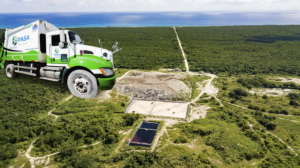
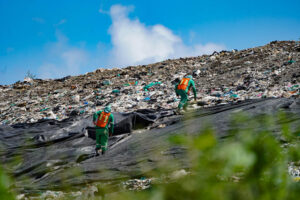

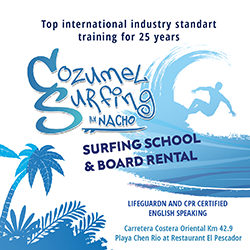
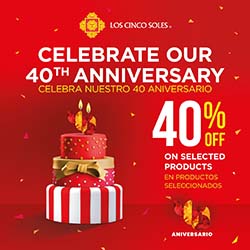
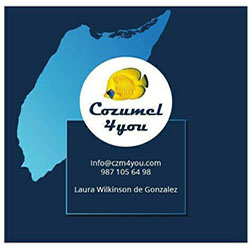




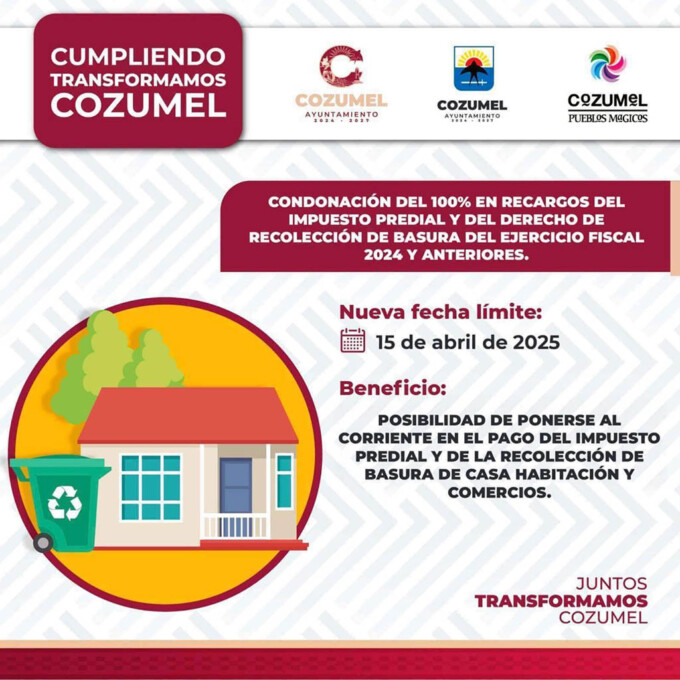


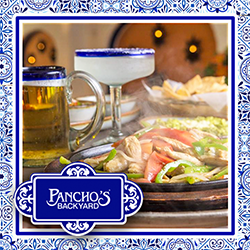
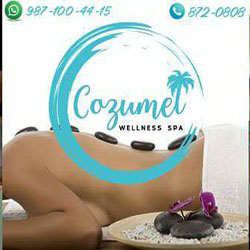
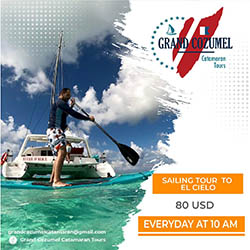


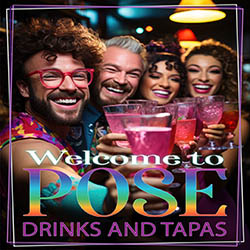


Leave a comment